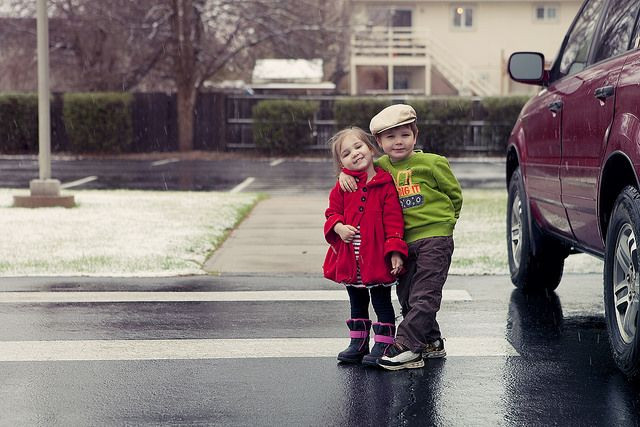Having Brothers And Sisters Gives Kids Compassion Even More Than Best Friends

Only children may not have a formally recognized syndrome all to themselves, per se, but there is a far greater likelihood that kids with siblings will grow up to be more compassionate and altruistic, a new study finds. And contrary to prior results, it’s not just girls who benefit.
Social scientists love understanding which forces end up shaping people’s personalities. Was it an errant throw in little league, ending a season, that scarred someone for life, or a more general and deep-seated tendency to dwell on negative events? Sibling studies offer a unique look into this development, helping to uphold the idea that nature and nurture work together, not independently.
Early apologies to only children: Close friendship just doesn’t cut it. “If a child doesn’t have a sibling, parents can work hard to give that child similar opportunities with peers,” study co-author Laura Padilla-Walker told Medical Daily. “But a sibling provides an easy and continuous avenue to conflict and reparation that help to improve sympathy and prosocial behavior, which is a great thing, especially for boys.”
For three years, Padilla-Walker and her colleagues in Brigham Young University’s Department of Family Life tracked 308 pairs of teenage siblings. The project measured each teenager’s personal development and the relationships they formed with friends and family, in both quantity and quality. What they found was a divide between the sexes in friendships and mother-child relationships. “The sibling relationship, however, did not have this gender difference,” Padilla-Walker said.
Where boys tended to see their friends and parents as meaningful, girls were more likely to see them as necessary. Admittedly, the findings fit with most of the assumptions we already make. Boys can be solitary, brooding, stoic. Girls, on the other hand, tend to be communicative, empathetic, and caring — qualities that largely hold true regardless of the relationship. But boys are a different story.
“They seemed to report relying on sibling affection just as much as girls do,” Padilla-Walker said in a statement. “It’s an area where parents and therapists could really help boys.”
What’s more, subjects who had siblings were more likely to exhibit prosocial behaviors: the kinds of generosity you might find right before a family meal, where one child sets the table and another helps take dinner out of the oven. This should make some sense. Larger families tend to rely more on values of community and sharing, as resources are limited. Only children, growing up with 100 percent of the resources, see far fewer cases where they must sacrifice or compromise. So the skill goes unlearned.
One way to combat this tendency, as Padilla-Walker points out, is to expose only children to friends and schoolmates. Parents can use the social interaction as a teachable moment: to tell their kids the value in learning to use their emotional intelligence and stand in someone else’s shoes, even if they never have to at home.
On the other side of things, it’s important sibling relationships are healthy. “The absence of conflict does not mean the presence of affection,” Padilla-Walker said in the university release. Keeping a harmonious relationship is what matters, not fighting fires. Ultimately, kids should walk away from the spat with an understanding of why the other person felt hurt or upset.
“It’s OK if siblings fight,” she said, “but help them get through that and have other positive interactions.”
Source: Harper J, Padilla-Walker L, Jensen A. Do Siblings Matter Independent of Both Parents and Friends? Sympathy as a Mediator Between Sibling Relationship Quality and Adolescent Outcomes. Journal of Research on Adolescence. 2014.



























